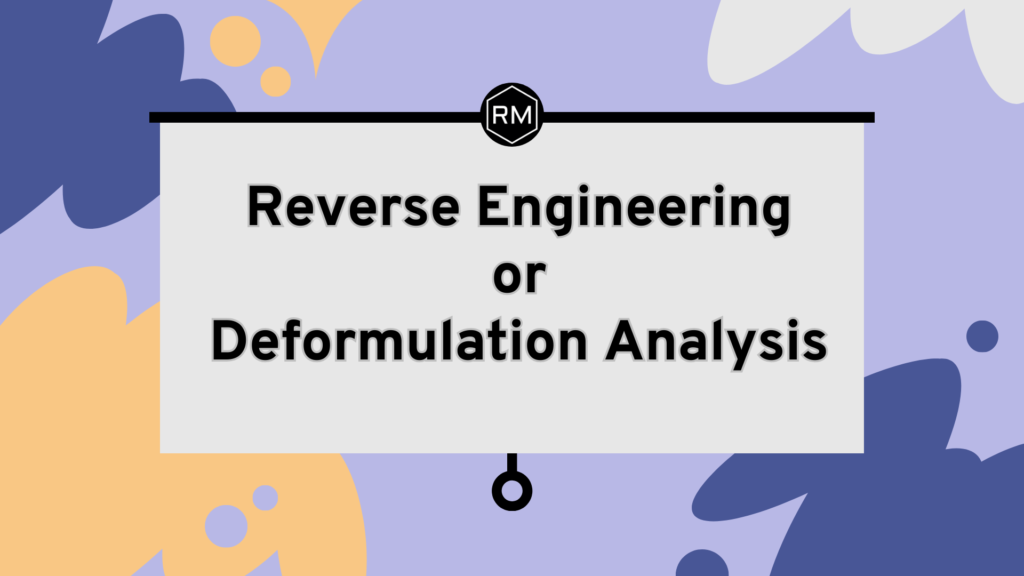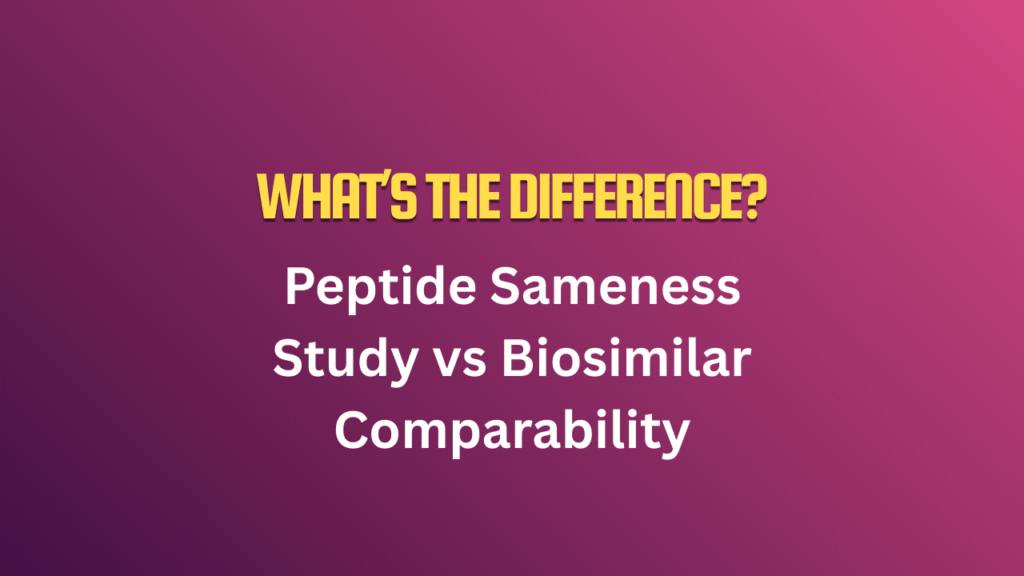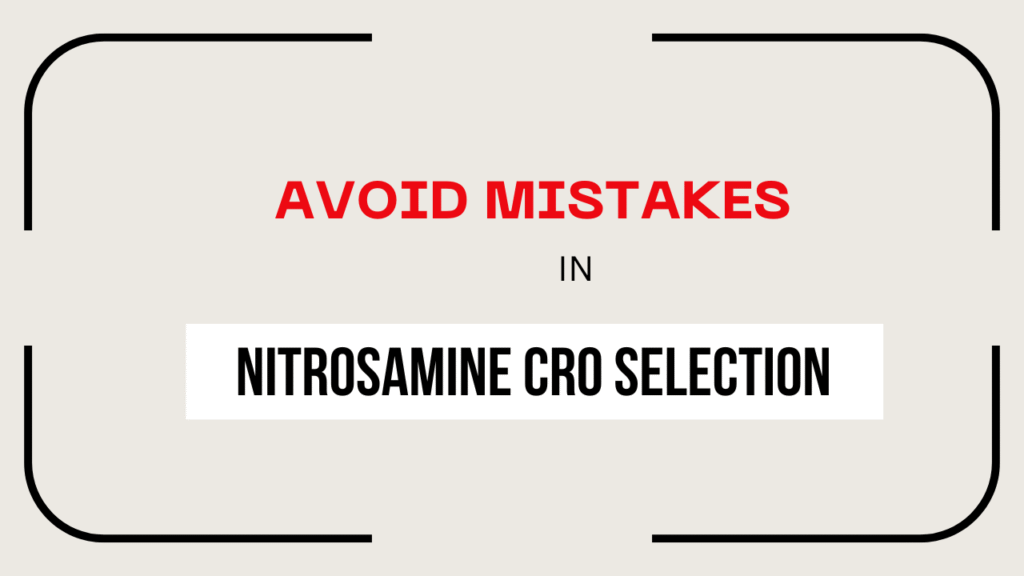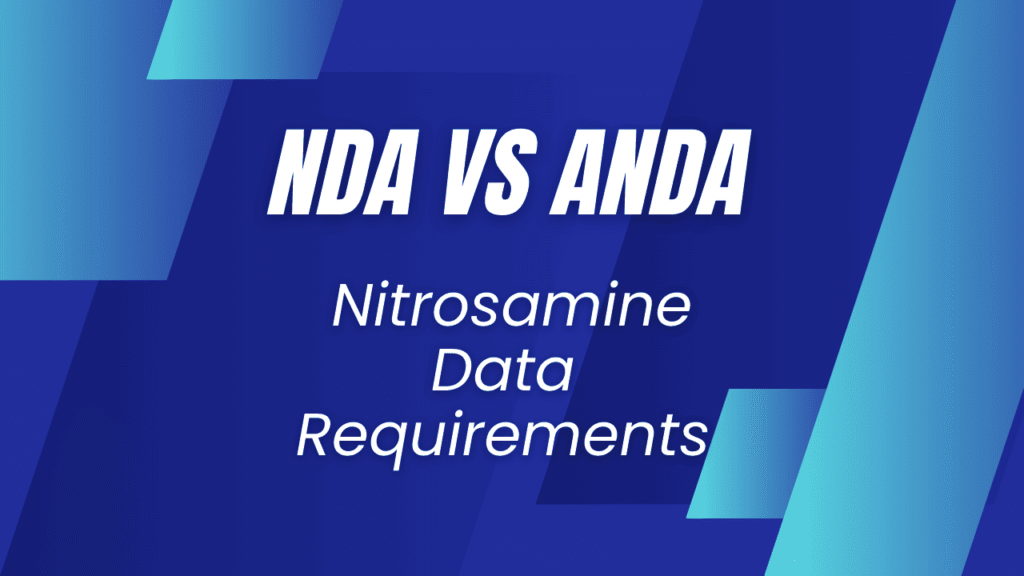Reverse Engineering or Deformulation Analysis
Unlocking the Secrets of Complex Formulations with Reverse Engineering or Deformulation Analysis
Get Started with Your Project

What Is Reverse Engineering or Deformulation Analysis?
Reverse engineering, also known as deformulation, is the process of breaking down (Tear down) a product into its individual components to understand its chemical, physical, and functional properties. It’s a critical tool used across industries such as:
- Pharmaceuticals: Understanding drug formulations, including generic product development.
- Materials: Various materials ranging from unique chemical formulations to cosmetics.
- Polymers and Plastics: Identifying additives, stabilizers, fillers and other key ingredients used.
- Cosmetics: Decoding active and inactive ingredients in various cosmetic products.
- Food and Beverages: Analyzing flavors, preservatives, and nutritional content.
By reverse engineering, businesses can gain valuable insights to innovate, replicate, or improve existing products.
Why Choose Reverse Engineering or Deformulation Studies?
- Competitor Analysis: Discover how leading products are formulated.
- Generic Product Development: Optimize formulations for bioequivalence and cost-efficiency.
- Troubleshooting: Identify issues in manufacturing or performance.
- Innovation: Enhance existing products or create superior alternatives.
- Regulatory Compliance: Ensure products meet industry standards.
At ResolveMass Laboratories Inc., we utilize state-of-the-art technologies to deliver detailed and accurate deformulation studies, including:
1. Material Identification
- Chemical Composition Analysis: Determine the identity and quantity of each component.
- Spectroscopic Techniques: Using FTIR, NMR, and Raman Spectroscopy to uncover molecular structures.
2. Polymer and Plastic Analysis
- Additive Identification: Stabilizers, plasticizers, antioxidants, etc.
- Molecular Weight Distribution: Gel Permeation Chromatography (GPC).
- Thermal Analysis: Differential Scanning Calorimetry (DSC) and TGA.
3. Pharmaceutical Deformulation
- API (Active Pharmaceutical Ingredient) Quantification: Understand drug composition.
- Excipient Analysis: Identify binders, fillers, and coatings.
4. Food and Cosmetic Studies
- Flavor and Fragrance Profiling: GC-MS-based analysis.
- Preservative and Color Additive Analysis: Ensuring compliance and quality.
FAQ
ResolveMass Laboratories Inc.: Your Trusted Partner in Polymer Synthesis and Characterization
ResolveMass Laboratories Inc. is a trusted Canadian contract research organization offering a wide spectrum of specialized services spanning polymer synthesis, advanced analytical testing, and custom organic synthesis. With over a decade of experience supporting pharmaceutical, biotech, and industrial clients, we bring scientific precision and regulatory insight to every project. Our core capabilities include Polymer Synthesis and Characterization, Peptide Characterization, Organic Synthesis, Nitrosamine Testing and Analysis, PFAS Testing, and Extractable & Leachable Studies, as well as a broad suite of analytical techniques such as HPLC, GC-MS, MALDI-TOF, NMR, and FTIR.
Clients across North America trust ResolveMass for our scientific rigor, transparency, and commitment to delivering reproducible results. Partner with ResolveMass Laboratories for polymer synthesis and characterization—where innovation meets dependability.
Peptide Sameness Study vs Biosimilar Comparability: What’s the Difference?
Introduction: Peptide Sameness vs Biosimilar Comparability is one of the most misunderstood concepts in modern…
Case Study: Root Cause Investigation of Unexpected NDMA Spike in Finished Product
Introduction In this NDMA Root Cause Investigation Case Study, we examine a real-world scenario involving…
Selecting the Right Nitrosamine Testing CRO: A Technical Due Diligence Checklist
Introduction Nitrosamine Testing CRO Selection requires detailed scientific evaluation and regulatory awareness. Global authorities continue…
Case Study: Sameness Evaluation of Semaglutide Generic project submission to Health Canada
Introduction: Semaglutide Sameness Evaluation for Health Canada is a scientifically rigorous analytical process required to…
Analytical Testing Services for Peptide-Oligonucleotide Conjugates
Introduction: Why Specialized Peptide Oligonucleotide Conjugate Analysis Is Essential Peptide Oligonucleotide Conjugate Analysis is critical…
NDA vs ANDA Nitrosamine Data Requirements: What Sponsors Must Submit
Introduction: The global pharmaceutical industry is facing strict regulatory control for mutagenic impurities, especially nitrosamines….
References:
- Sharma Jyoti, Gupta Sunil, Sharma Nitin. (2023) Possible, Protocol for Deformulation Studies for Pharmaceutical Products. International Journal of Clinical and Experimental Medicine Research, 7(2), 111-116. DOI: 10.26855/ijcemr.2023.04.002





